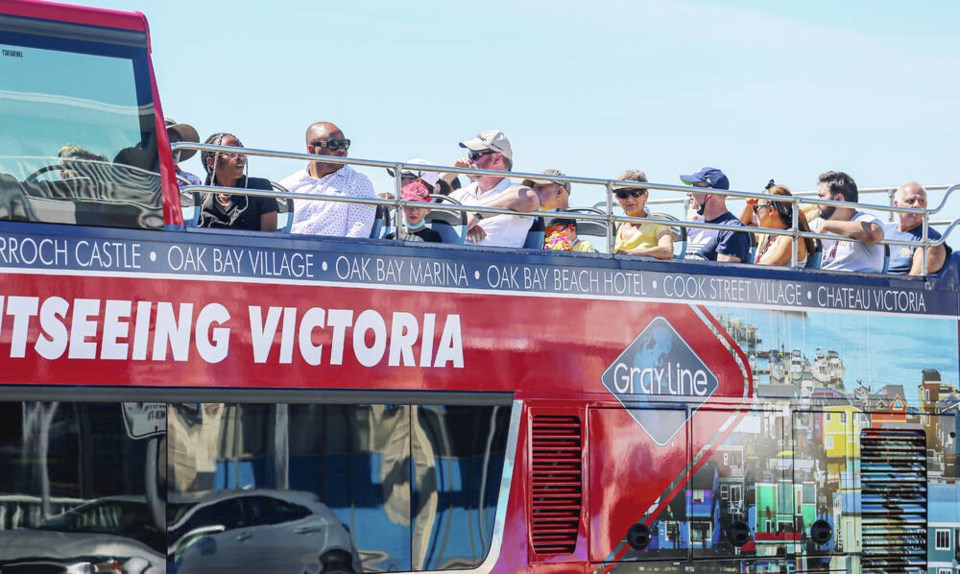Organizations tasked with selling Victoria and B.C. to the world are aiming to get the word out that visitors should keep their vaccination records with them when touring, now that restaurants and other venues require them for entry.
“All we can do is communicate the official messages as often as we can,” said Destination Greater Victoria chief executive Paul Nursey.
The province’s vaccine-passport program, which came into effect this week, requires customers to show proof of vaccination at restaurants, sports venues, theatres and other higher-risk social and recreational events, including many of the venues tourists tend to frequent, such as the Royal B.C. Museum and the dining room at Butchart Gardens.
While leisure visitors from other countries are required to have proof of vaccination to enter Canada, they may not remember to carry those documents at all times.
Victoria restaurants have dealt with a number of visitors forgetting their proof of vaccination documents in their hotel rooms or bringing the wrong kinds of documents when they are touring the city.
Nursey said Destination Greater Victoria and its members have been using Destination British Columbia’s messaging guidelines, which are consistent with provincial government messages, to get the word out.
Clare Mason, spokeswoman for Destination B.C., said they are encouraging visitors to “know before you go” and have posted updated COVID safety information, including vaccine requirements, on the Hellobc.com website.
Mason said the information is also shared across the organization’s social media channels, through its partners, tourism businesses, travel media and both foreign and domestic travel operators.
Destination B.C. also produces market-specific messages that can be used by tourism marketers and businesses when communicating with would-be tourists.
Mason said the need for vaccine documentation is also being passed on by airlines, airports and Canada Border Services.
“Given that U.S. and international visitors must download the required ArriveCAN application on their smart phone before they arrive in Canada, it is something that they will likely have with them at all times during their stay,” she said.
Nursey said the situation reminds him of the aftermath of 9/11, when everything changed with regard to screening for air travel and documentation for border crossings.
“Change is always uncomfortable in life and in business,” he said. “However, if there is good news, history has shown us that after a period of adjustment, things settled down and customers adapted.”
Wesley MacInnis, spokesman for the Royal B.C. Museum, said the museum has not had to turn anyone away at the door since announcing it would require proof of vaccination for entry.
He said because the proof of vaccination they accept is the same as that required to get into Canada, they don’t anticipate much trouble, adding the museum has been proactive on social media and on its website alerting visitors to the entry requirements.
The museum has had to provide a number of refunds to annual members and IMAX Victoria pass holders, who were told this week they could not use the facility without proof of vaccination.
MacInnis said reaction to the museum’s decision was mixed, with some saying “thanks for keeping us safe” and others saying they don’t approve and won’t be visiting.
He said while museums and other public spaces like galleries and libraries are not required to ask for proof of vaccination, the Royal B,C. Museum had little choice, as it shares space with IMAX and runs events and programs that involve more than 50 people.
“Because we can’t separate [them], it puts us in a different category,” he said.



